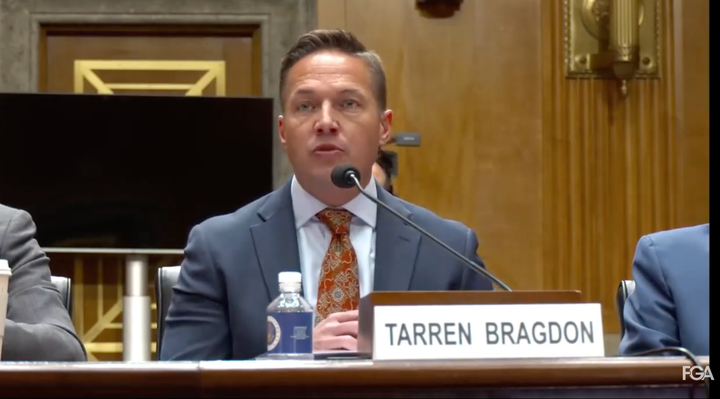Congressional Democrats have for years been trying to pass a law to lower prices for some drugs by allowing the federal government to negotiate down the prices of some high-cost prescription drugs with pharmaceutical manufacturers, but so far they have been stymied by the pharmaceutical lobby and its allies in Congress. Public opinion polls consistently show that most Americans are concerned about the costs of their prescription, and they also indicate that majorities of both Republican and Democratic voters want to allow the government to negotiate lower prices.
As of yesterday, the pharmaceutical industry has a new talking point to use in its fight against government negotiations—one that may be compelling to policymakers who are receptive to perceptions of how their actions may impact communities of color.
“Over half of voters of color oppose government negotiation of drug prices once they learn about consequences for patients,” according to a poll out this week from the National Hispanic Council on Aging (NHCOA) and National Minority Quality Forum (NMQF), two nonprofits with missions to improve quality of life for people of color. To get a majority of the respondents to say they oppose allowing the government to negotiate with drug companies, the pollsters told respondents that it “could delay people’s access to newer prescription medicines”—a common pharmaceutical industry talking point. The nonpartisan Congressional Budget Office found that an earlier, much more expansive version of the Democrats’ proposal, House Democrats’ H.R. 3, would lower drug prices and improve people’s health, but that over the next 10 years it “would lead to a reduction of approximately 8 to 15 new drugs coming to market.”
NMQF President and CEO Gary Puckrein discussed the poll findings yesterday afternoon at an event attended by at least one member of Congress, Rep. Michael Burgess (R-Texas), that was hosted by The Hill, a D.C. publication that is widely read by congressional staff and other policymakers.
The new polling comes as the Senate is preparing to vote on a pared-back version of the drug price negotiation proposal. Senate Majority Leader Chuck Schumer (D-N.Y.) and Sen. Joe Manchin (D-W.V.) announced that they had struck a deal on a package of legislation that the Democrats could pass under the budget reconciliation process that denies the minority the ability to filibuster. The package would allow the government to negotiate drug prices, but unlike earlier versions of the proposal the lower, negotiated prices would not be made available to buyers outside of Medicare and it does not retain a provision that would have capped the cost of insulin. The new version also allows the government to negotiate on only 10 drugs, whereas a previous version would have enabled it to negotiate on a minimum of 25 drugs.
Schumer and Manchin said in their announcement that they plan to have the Senate vote on the budget reconciliation package next week. Republican Sen. Mike Crapo (Idaho) told reporters earlier this week that Senate Republicans are going through the proposal line by line to see if there are ways they can disqualify it from budget reconciliation procedures, which is generally only available for legislation that has a direct impact on the budget. If it passes the Senate, the legislation would then move to the House of Representatives.
National Minority Quality Forum, which describes itself as an “independent research and education organization,” is funded by the pharmaceutical industry. Since at least 2010, NMQF has received annual donations from pharmaceutical industry lobbying group Pharmaceutical Research and Manufacturers of America (PhRMA) of between $25,000 and $442,000, according to Sludge’s review of tax documents. Its “corporate roundtable” members include companies that make some of the most expensive drugs in the world, including Amgen, Abbvie, and Gilead. Otsuka Pharmaceutical’s director of federal affairs and advocacy has a seat on NMQF’s advisory board.



